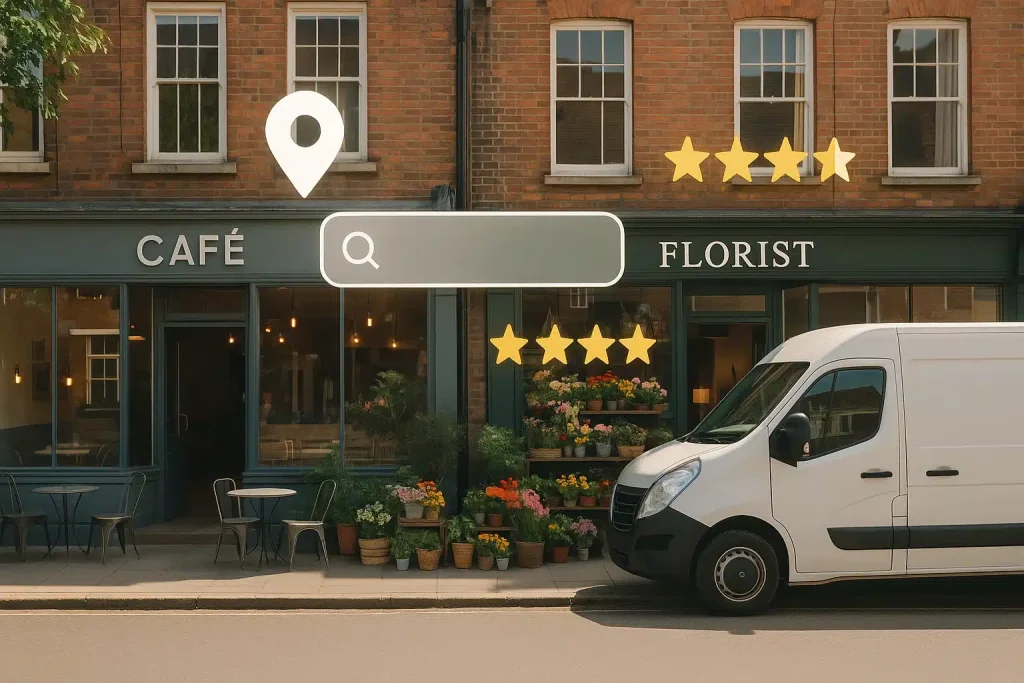Local SEO is one of the most powerful ways for smaller companies to compete with national chains. While big brands may dominate traditional advertising, local search engine optimisation lets smaller businesses appear in the exact search results that matter most. By focusing on local search results rather than broad national visibility, it’s entirely possible for a single-location shop or service provider to rank higher than a corporate giant when people search in their city or neighbourhood.
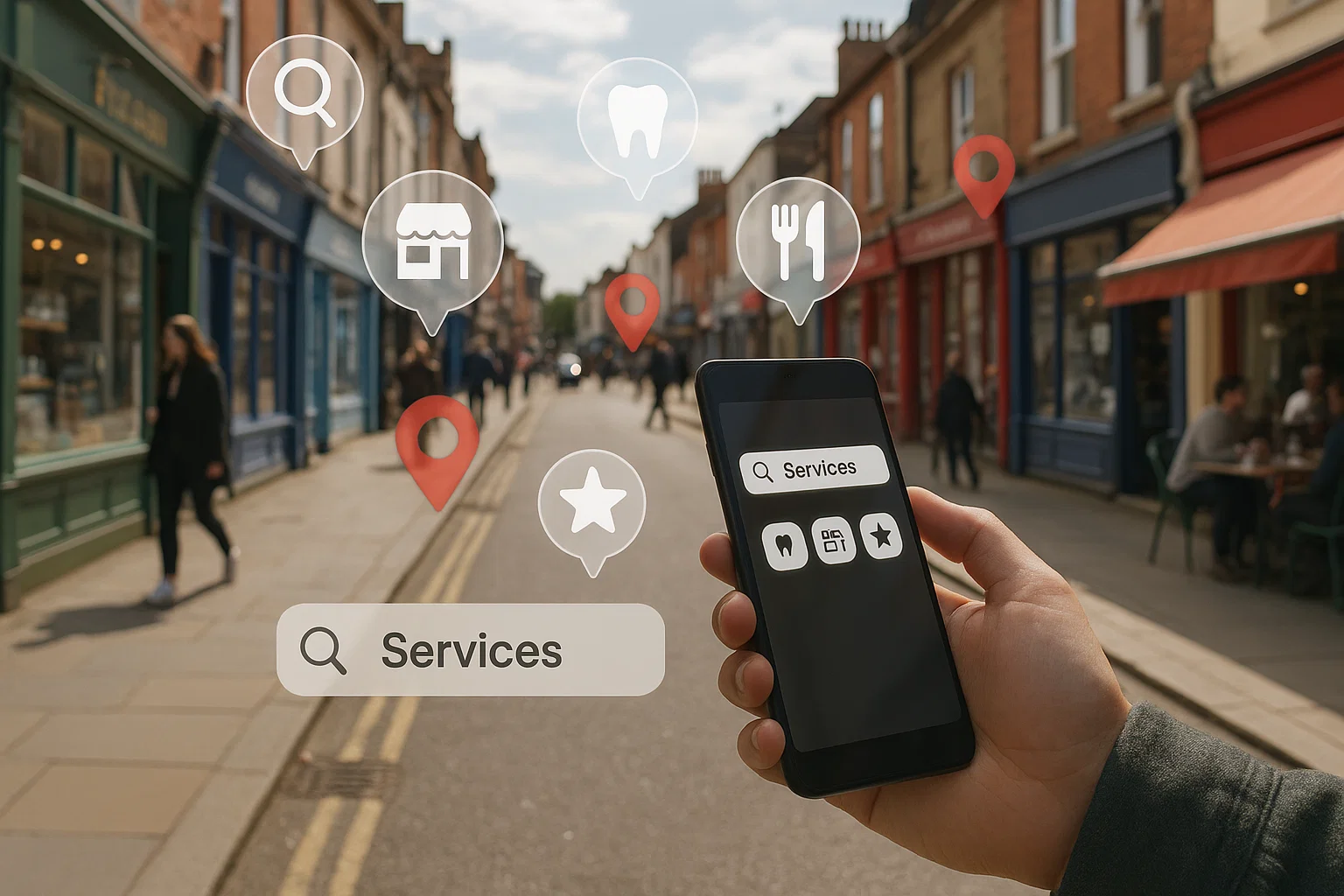
Why Local SEO Matters More Than Ever
When users search for a business nearby such as “electrician in Manchester” or “florist near me”, Google Maps and the Local Pack are often the first things they see. These placements are prime digital shop window. They show your business profile, reviews, opening hours, location and even photos without the person needing to click through to a website.
For a small company, appearing here means your services are in front of people exactly when they’re ready to book or buy. The local search algorithms favour relevance, proximity and trust signals, which means smaller businesses with accurate, well-maintained profiles can compete directly with bigger players. To see how trades businesses in particular are using these same principles to win local leads, our guide on SEO vs Checkatrade breaks down why investing in your own visibility beats paying for short-term listings.
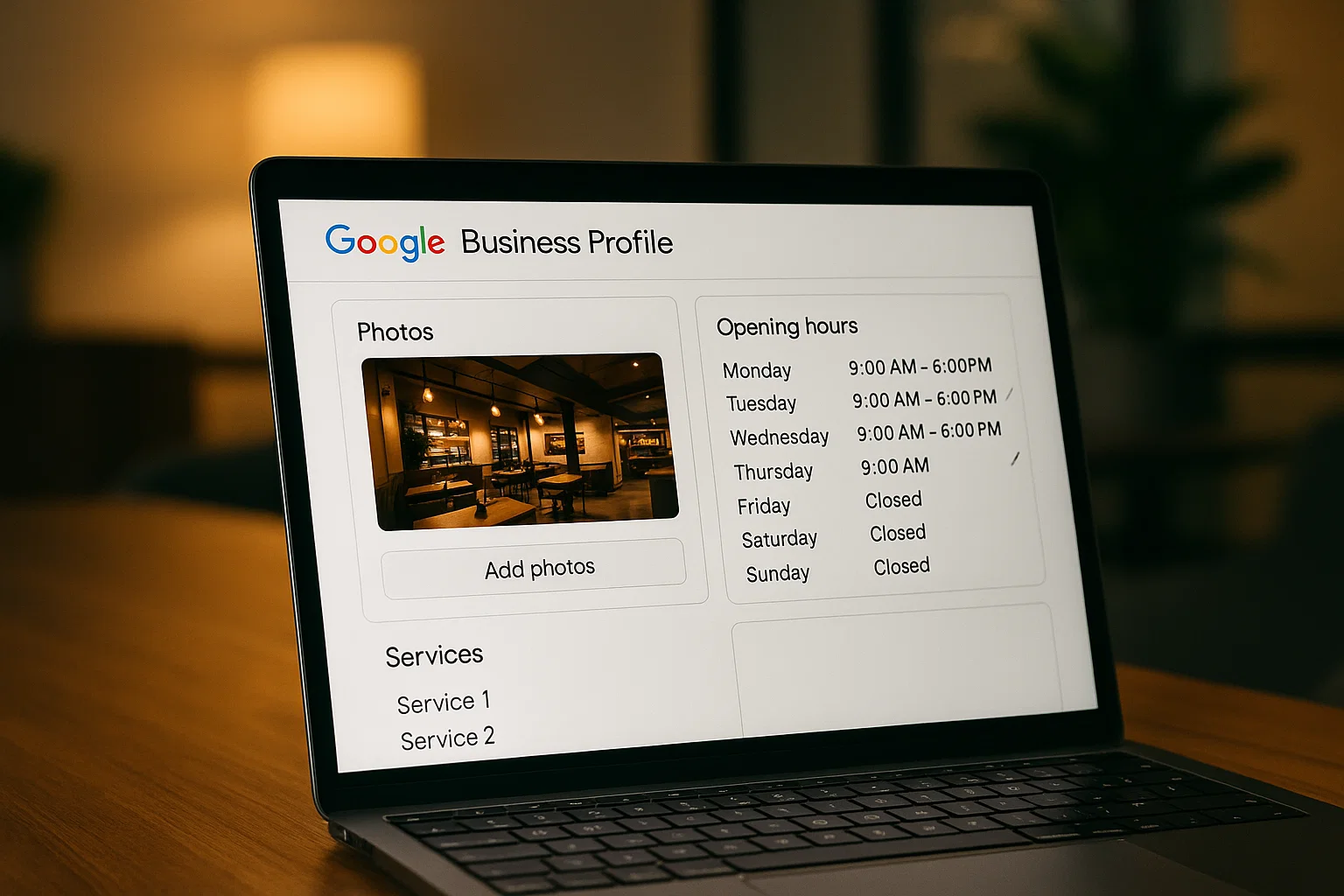
How to Build a High-Performing Business Profile
Your Google Business Profile acts like an online shopfront. To maximise visibility in local search results, make sure you:
- Keep opening hours up to date
- Add high-quality photos of your premises, team, or work
- Include all relevant services you offer
- Write a clear, keyword-rich description of your company
- Use posts to share updates, promotions, or seasonal offers
By doing this, you connect with potential customers before they even visit your site. This builds trust, encourages action and signals to Google that your listing is worth showing. If you’re already getting visitors but struggling to turn them into paying customers, our blog on why your website might not be bringing in customers explains what’s holding conversions back.
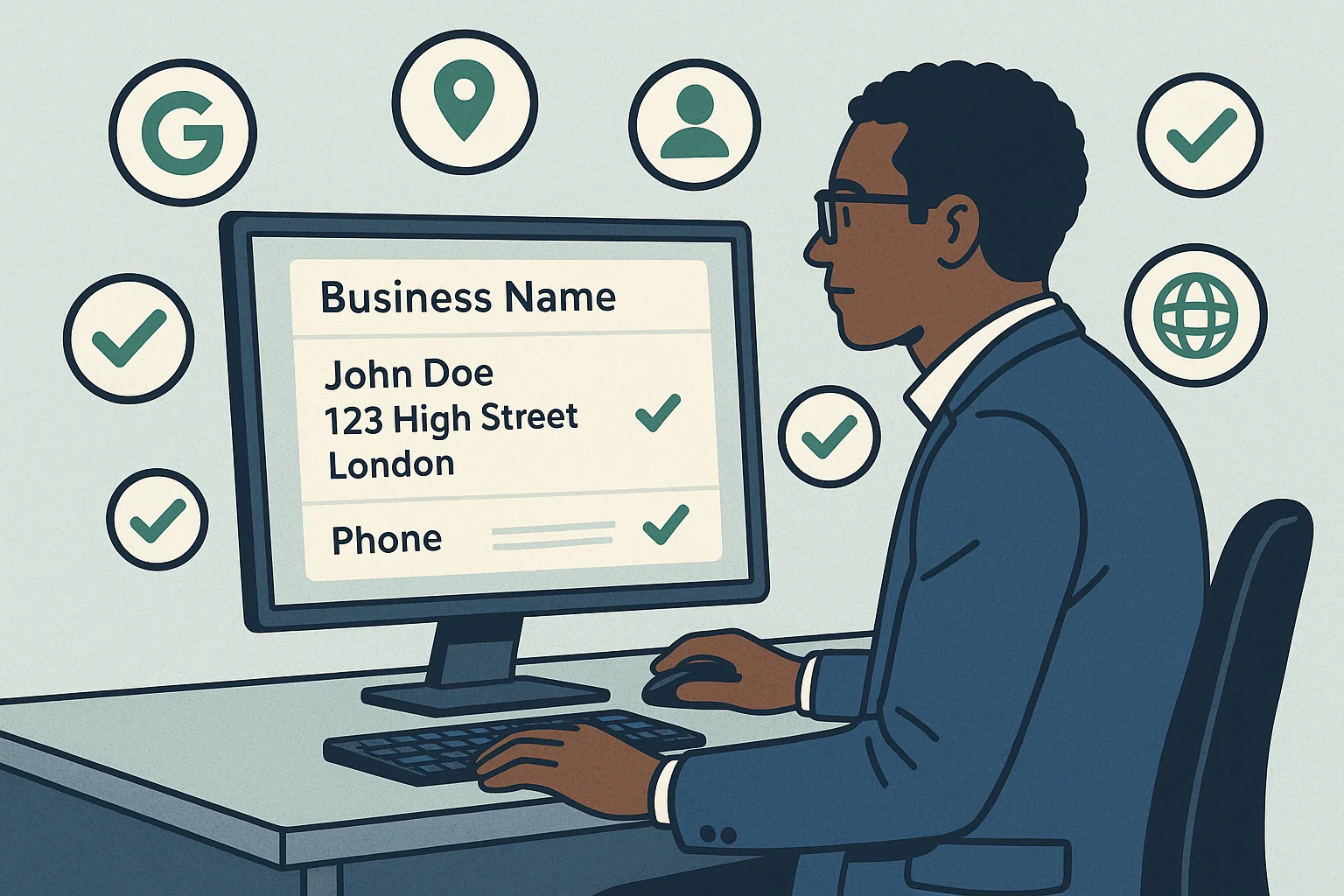
NAP Consistency Across the Web
For local SEO, NAP stands for Name, Address and Phone number. These must be identical anywhere your business appears online. Whether it’s your own website, a business directory, or social media, inconsistent details can hurt rankings.
For UK businesses, being listed in trusted local SEO resources like Yell, Thomson Local and FreeIndex helps Google verify your location and legitimacy. This makes it easier for potential customers to discover and choose you over competitors. For an extra level of verified trust in local search results, Google Guaranteed is another tool helping small businesses stand out with a vetted badge of credibility.

How Reviews Boost Your Local Search Visibility
Genuine reviews are a powerful local SEO ranking factor. A steady stream of authentic customer feedback, ideally mentioning your city or services, sends strong trust signals. Responding to each review shows you actively manage customer relationships.
Small businesses have an edge here because they can build closer connections with their community. Encouraging satisfied customers to leave a review improves visibility and builds credibility at the same time.

Creating Locally Relevant Content
When you create content that speaks directly to your location, you capture search intent that big brands often miss. A tradesperson could publish an article on “How to Prepare Your Garden for Winter in Chester,” while a café might post a video on seasonal specials unique to their city.
This type of content does more than boost rankings, it strengthens ties with your community and positions your company as the local expert.

Building Local Links for Authority
Links from other local businesses and organisations act as strong ranking signals. Partnering with a charity, sponsoring a local event, or being featured in a regional publication creates backlinks that improve your search results position.
It also builds offline brand recognition, meaning you’ll connect with more people in your area, a benefit national chains can’t replicate at the same personal level.
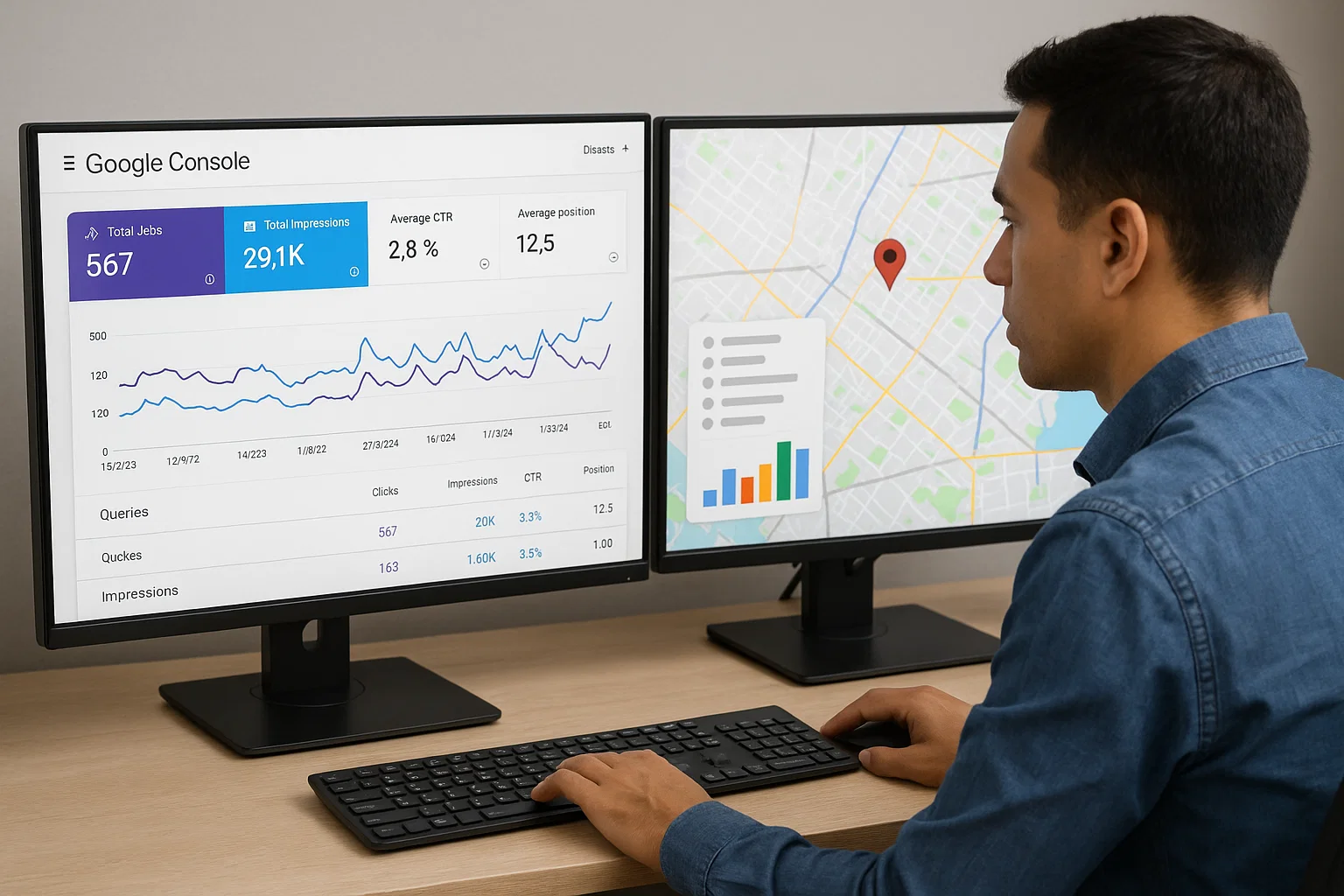
Using Local SEO Tools to Your Advantage
From rank tracking to citation management, the right local SEO tools help you monitor progress and spot opportunities. For example, Google Search Console shows which search queries lead to clicks, while Insights within your Business Profile reveal how people find and interact with your listing.
These insights let you manage your strategy effectively, ensuring you continue to rank higher over time.

Optimising for Voice and Mobile Searches
With more users relying on voice assistants, it’s important to optimise for natural, conversational queries. Instead of just targeting “plumber London,” consider phrases like “Who’s the best plumber near me?” Adding FAQ sections to your site also increases the chance of showing in voice search results.
Mobile optimisation matters too, slow or poorly formatted sites can make potential customers leave before taking action.

Monitoring and Managing Performance
Local SEO is never a one-off task. To maintain success, you need to monitor rankings, traffic and engagement regularly. Google updates its algorithm frequently, so staying active with fresh content, updated hours and new photos is essential.
Using the right tool to track changes ensures your efforts remain effective, whether that’s free analytics software or a paid local tracking platform.

Why Small Businesses Can Outperform Big Brands
Large corporations may have money, but small businesses often have more agility and deeper local knowledge. You can update your profile instantly, respond to reviews personally and tailor offers for your community in ways big brands simply can’t.
This local focus means you can build trust faster, connect more meaningfully and convert interested customers into loyal regulars. If you want to explore how local SEO tools and strategy fit together, Ahrefs’ guide to local SEO offers a practical overview for small businesses.
Turning Local Searches into Long-Term Customers
In the battle for local search results, relevance and personalisation win over sheer budget. By maintaining an accurate business profile, encouraging reviews and engaging your community, small businesses can take the top spots in search engine results pages.
If you’re interested in finding out how well your company is currently performing, you can request a free local SEO audit. It’s the first step to helping your business appear where it matters most, in front of people ready to buy in your city.
